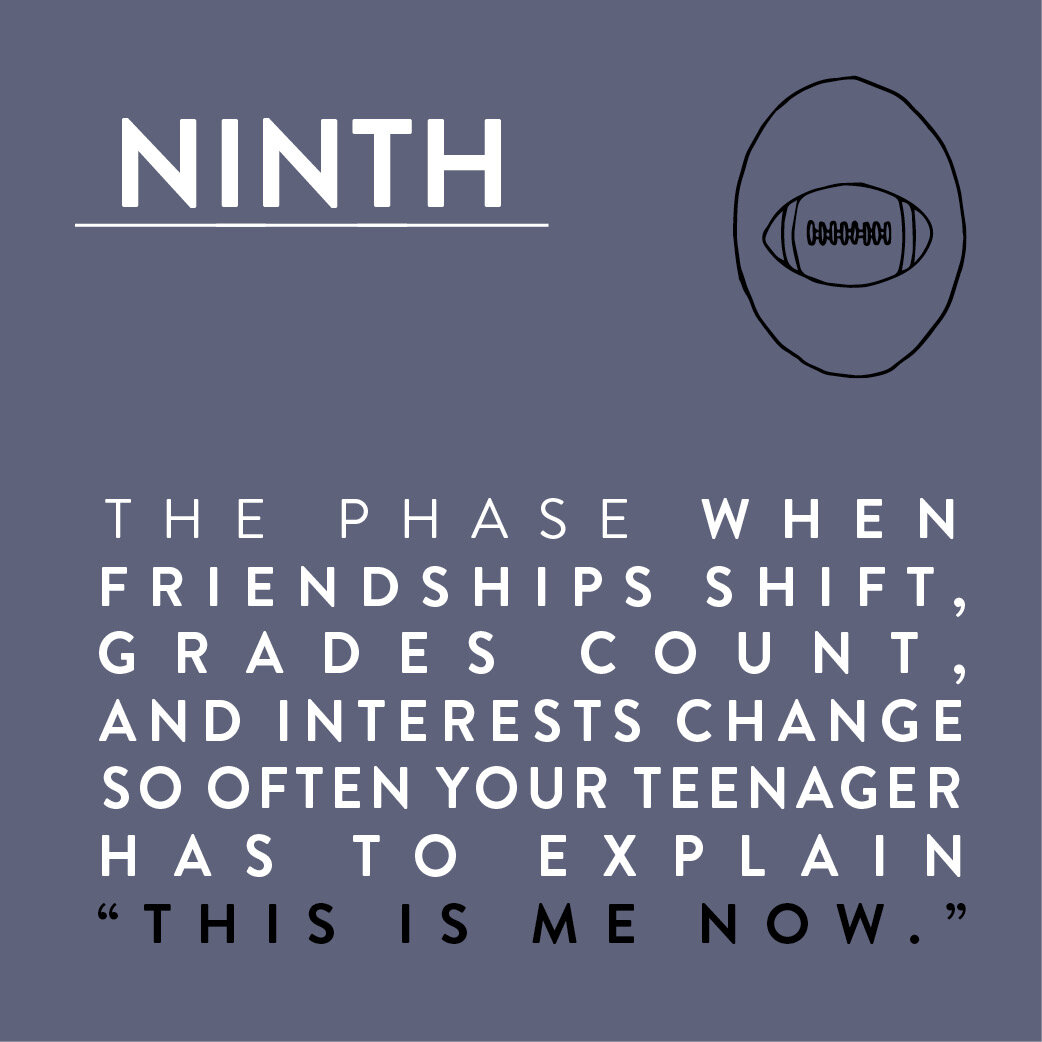Every PHASE is a time-frame in a kid's life when you can leverage distinctive opportunities to influence their FUTURE.
Every phase is crucial. Every phase has its own SIGNIFICANT RELATIONSHIPS, PRESENT REALITIES, & DISTINCTIVE OPPORTUNITIES.
— So we have to pay attention.
— We have to do our homework.
— We have to show up consistently.
— Your kids matter at every phase.
— You can't afford to miss it.
PHASE TIMELINE OVERVIEW — click image to view larger.
Click on the age groups below to view the full the phase information —
0 - 4 years
THINKS like an ARTIST
Preschool - Grade 5
THINKS like a SCIENTIST
Grade 6 - Grade 8
THINKS like a ENGINEER
Grade 9 - Grade 12
THINKS like a PHILOSOPHER
Parental
Influence
REACTIVATE PARENTS EVERY YEAR - So kids at every phase will stay connected to their parents.
Regardless of how much a church learns about life stages, parents know things no one else knows about their own children. That’s why parents have an advantage that church will never have related to the future of a child. A parent has history. Churches work with multiple kids in the same phase every week. That means church can help parents understand general characteristics of a phase so they can readjust their parenting skills.
Mental and physical changes
READ THEIR MIND - so kids at every phase will believe they can win.
If you don’t accurately access the physical and mental characteristics of an age group, you run the danger of expecting them to do more than they are able to do or not really challenging them to do what they can. When activities are too physically demanding or concepts are too difficult to grasp, kids become discouraged and give up. When the activities are too simple and not challenging enough, kids become bored and disinterested. That’s why it’s important to read their mind. Know what can be expected of them and know how they think so they will hear what you say and know what to do.
Relational questions
DISCOVER THEIR WORLD - so kids at every phase will feel like they belong.
You will never know kids the way you need to know them if you don’t take time to discover their world again and again. Cultural changes create a platform to discover who we are. It creates tension. When they collide with physical and mental changes, it results in a crisis. Relationships create a safe place to resolve who we are. Relationships bring clarity. When kids see themselves the way a loving adult sees them, it changes how they see themselves.






















